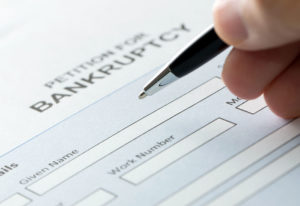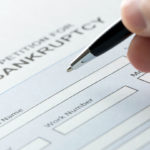CHAPTER 11 BANKRUPTCY
Filing a petition in bankruptcy is a serious decision and one that is hoped to never consider. If your business is struggling with debt, then it is important to investigate possible options, including various types of bankruptcy – like Chapter 11 bankruptcy – at your disposal. For many businesses, Chapter 11 bankruptcy could be the best choice to get out from under debt and develop a plan to get bank on their feet, or a way to reorganize the business to secure future business plans. If you are over leveraged or seeking to secure an equity injection and considering bankruptcy, you need the advice of a seasoned bankruptcy attorney in Miami to help guide you.
One of the biggest benefits of Chapter 11 bankruptcy is the automatic stay on all collection activates until it is complete. This will allow you to create a plan and to continue working to pay off your debts without closing your doors. It will protect your business and business assets, as long as you follow the plan to its entirety. Having seasoned Miami bankruptcy attorney Jason Weber by your side can alleviate the stress of a bankruptcy and help you save your business.
A few of the other benefits that Chapter 11 bankruptcy provides are:
- Ability to sell encumbered property more easily:
Encumbered property dissuades potential buyers due to liens against property. The Bankruptcy code permits a sale of estate assets free and clear of liens, claims, and interest; thus, “sanitizes” the assets being transferred. A bankruptcy judge can issue orders that resolve issues such as title, litigation claims or successor liability.
- Converting short-term debt into long-term debt:
Bankruptcy’s automatic stay prohibits the repayment of pre-petition unsecured debt until a reorganization plan is confirmed. Such pre-petition unsecured debt is very typically paid post-confirmation over a period of years after the business entity’s current debts are paid.
- Restructuring the balance sheet prior to an equity injection:
Leveraging new capital into the business can be more effective if planned correctly. If injected upon confirmation of a plan which converts pre-petition trade debt into long term payouts allows the new money to be used as working capital to meet the needs of the company, instead of being used to consume older obligations.
- An opportunity to accumulate working capital:
Upon filing of a reorganization case, unsecured debt may not be paid prior to approval of a reorganization plan. This relief from trade payables may allow a reorganizing business a window in which to accumulate capital needed for operations and to temporarily stop paying trade debt.
If you find that you are dealing with mounting debt that is making it difficult for you to do business, it is important to seek help from a seasoned bankruptcy professional. The Xander Law Group is ready to help you with your bankruptcy matters.
Contact Miami bankruptcy attorney Jason Weber to schedule a free consultation to learn about your legal options. Jason Weber has the experience necessary to guide you. Call the Xander Law Group at (305) 767-2001 today for all of your Miami business bankruptcy needs.
Miami business bankruptcy attorney Jason Weber and the Xander law Group can help you throughout the entire process. Miami business bankruptcy attorney Jason Weber will work with you to create the best solution to get out from your debt.
The specter of a tax liability may dissuade a possible purchaser. Issues involving environmental or successor liability, outstanding litigation claims against the business assets or the property can pose an insurmountable obstacle to a sale.
The Bankruptcy Code permits a sale of estate assets free and clear of liens, claims, and interest. A bankruptcy sale frequently “sanitizes” the assets being transferred. The free and clear sale is a title examiner’s dream: the bankruptcy judge’s order can resolve thorny issues of title, litigation claims or successor liability.
One of the most significant features in most Chapter 11 Plans, is the conversion of trade debt due in thirty days, to an obligation to be paid out over an extended time, often from future profits of the business. Bankruptcy’s automatic stay prohibits the repayment of pre-petition unsecured debt until a reorganization plan is confirmed. Such pre-petition unsecured debt is very typically paid post-confirmation over a period of years after the individual or company’s current debts are paid.
Business owners frequently make the mistake of injecting new capital into a troubled business only to have the money consumed by old obligations. New capital can be very effectively leveraged if it is injected into the company only upon confirmation of a plan which converts pre-petition trade debt to a long term payout, thereby allowing the new money to be used as working capital to address the fundamental problems in that business or its industry.
Upon the filing of a bankruptcy case, the automatic stay prevents the continuation of – or initiation of litigation against – the debtor. While bankruptcy judges take a dim view of a bankruptcy filing on the eve of a trial, the automatic stay can be used to slow litigation, or move the dispute to the bankruptcy court by resolution of the judge rather than a jury. A bankruptcy filing may also be a consideration for a party who has had a contested judgment taken against it. Rather than posting a supersedes bond in order to stay execution of the adverse judgment, a bankruptcy filing can prevent execution, while permitting the trial court loser to take the matter to appellate review. In addition to substantive benefits in litigation, a bankruptcy filing, or the threat thereof, may provide the leverage needed to settle potentially disastrous litigation.
Upon filing of a reorganization case, pre-petition, unsecured debt may not be paid prior to approval of a reorganization plan. This relief from trade payables may allow a reorganizing business a period of time within which to accumulate capital needed for operations. Most successful reorganizations require the injection of new capital pursuant to a plan, a refinancing, sale or other extraordinary event. However, a business beset by a paucity of working capital can, in the initial stages of a bankruptcy proceeding, enjoy a respite from the demands of servicing trade debt and accumulate cash.















